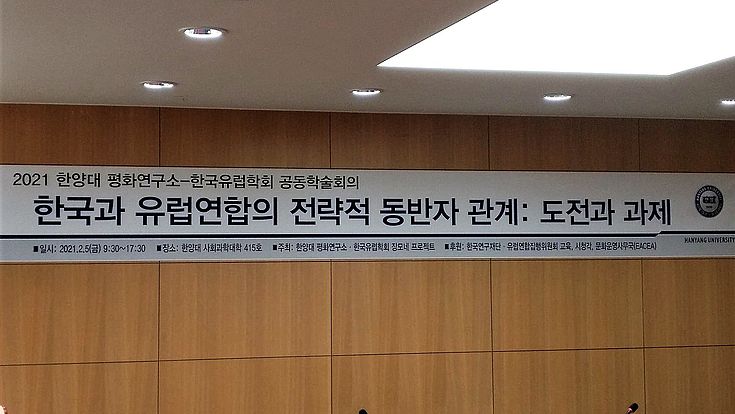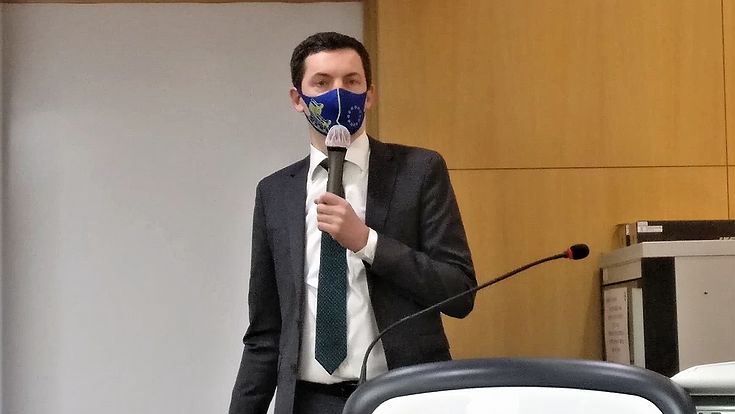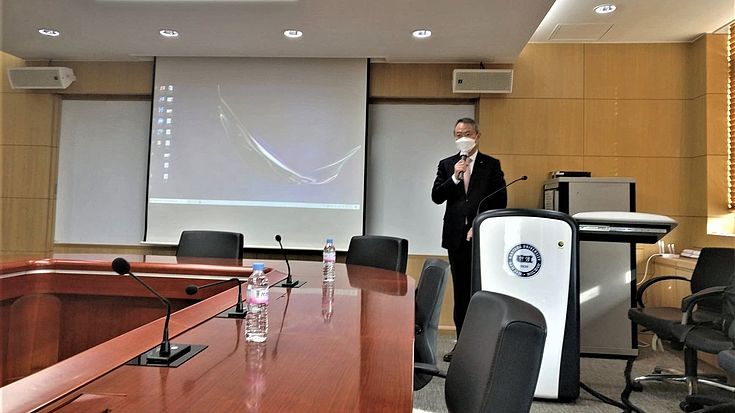Conference
The Future of the EU-Korea Strategic Partnership

The European Union (EU) and the Republic of Korea (ROK) concluded a strategic partnership in 2010. This is one of ten strategic partnerships the EU has formed in the world and it is, together with the EU-Korea Free Trade Agreement, an important pillar of cooperation between both sides. After ten years of economic, political, and cultural success through the partnership, the EU recently became more inward-looking. Because of political discussions which even led to Brexit, the exit of the United Kingdom from the EU, the EU is focusing less on outward relations. Facing this development, the conference discussed the strategic partnership between Korea and the European Union concerning political, economic, and security issues. It focused particularly on recognizing and evaluating culture's context in the process of establishing and modifying relationships in a variety of fields.

Professor Moosung Lee, President of the Korean Society of Contemporary European Studies, and professor Jinwoo Choi, director of Hanyang Peace Institute, had the honour to open the conference. Both emphasized the long history of EU studies in Korea and explained how these studies continue to attract scholarly debates in Korea. The ambassador of Germany, Michael Reiffenstuel, gave the first keynote speech, in which he focused on recent challenges for the European Union and Korea in the international arena. John Bogaerts, Head of Political, Press, and Information Section of the European Delegation to the Republic of Korea, spoke about new challenges in EU-Korea relations. Dr. Bernhard Seliger hold the third keynote speech and talked about the potential relaunch of the strategic partnership in order to face current developments such as the ‘new Cold War‘ between the United States of America and China, the security situation on the Korean Peninsula and multilateralism in world politics. Therefore, he proposed a high-level forum of the European Union and Korea to strengthen the exchange between administrations, governments, parliaments, businesses, the cultural sector, and civil society in both countries. Such forums already exist between some European States such as Germany and other countries.

The first session focused on two papers presented by professor Hyeonho Hahm of Hanyang University and professor Sae Won Chung of Pukyong National University and was moderated by Prof. Ki-Joon Hong of Kyunghee University. Professor Hahm spoke about ‘Domestic foundations of the ROK-EU Strategic partnership‘. This paper, which is based on the experimental game theory, looks at the domestic dimensions of EU policies and domestic constituencies. It was discussed by Professor Nam-Kook Kim of Korea University and Professor Sunhee Park of Hanyang University. The second paper, which was presented by professor Chung dealt with the ‚Pillars of the EU-South Korea Strategic Partnership‘ and was discussed by professor Joo-Hyun Go of Yonsei University and professor Hayann Lee of Hankuk University of Foreign Studies.
The second session consisted of three panel discussions with members of the KSCES (Korean Society of Contemporary European Studies) discussing economic, political and security cooperation between the EU and Korea. It was then followed by a roundtable on the ‚Korea-EU strategic partnership and the development of US-China relations’.
The future of EU-Korea relations is uncertain in times of a global pandemic. This conference has shown potentials, but also weak point of the cooperation. The exchange and cooperation of Korean and German representatives is useful and worthwhile and will hopefully lead to new success of the partnership in the next ten years.
